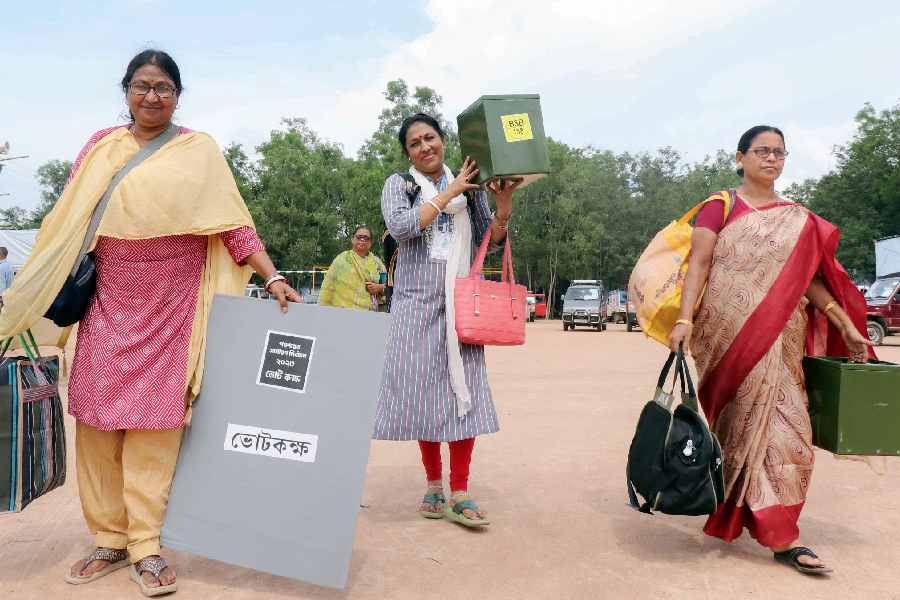Amid widespread violence and killings, rural West Bengal braces for the crucial three-tier panchayat polls on Saturday, which serves as a litmus test for the 2024 parliamentary elections and holds the power to reshape the state's political landscape.
Around 5.67 crore voters are likely to exercise their franchise to choose representatives for nearly 928 seats across 22 zilla parishads, 9,730 panchayat samities, and 63,229 gram panchayats seats.
Since the day the polls were announced on June 8, widespread violence was reported in various parts of the state leading to the death of over a dozen people, including a teenager.
Chief Minister and TMC supremo Mamata Banerjee and the party's national general secretary Abhishek Banerjee led the party's campaign while stressing the need to shun strong-arm tactics by its cadres and allow more democratic space to the political opponents, to avoid the rerun of the 2018 rural polls when it had won around 34 per cent seats uncontested.
BJP state president Sukanta Majumdar, national vice-president Dilip Ghosh, and leader of opposition Suvendu Adhikari led the saffron party's campaign, whereas state Congress president Adhir Ranjan Chowdhury and CPI(M) state secretary Mohammed Salim led their parties' respective poll drives.
The Indian Secular Front (ISF), with its limited presence in parts of North and South 24 Parganas, too grabbed headlines as its leader and lone MLA Nawsad Siddique led the party’s campaign, which often resulted in clashes with the ruling TMC in Bhangor in South 24 Parganas.
For the first time, Raj Bhavan played an active role in addressing the issue of poll violence, with Governor C V Ananda Bose opening a 'Peace Home' at the governor's house to address complaints of the aam aadmi.
The Raj Bhavan occupant was seen rushing to violence-hit areas to assuage the victims and their families, drawing a pat from the BJP and criticism from the ruling TMC.
The polls to elect representatives for village councils will be held under the watchful eyes of central forces for the second time since the inception of the Panchayati Raj system in Bengal in the late Seventies.
Nearly 65,000 active central police personnel and 70,000 state police personnel will be deployed for the polls, officials said.
"BJP seems to forget that people vote and not the central forces. If the BJP doesn't have the support of people, no matter how many central forces you seek, the mandate will not change," Abhishek Banerjee said.
In the 2013 panchayat polls, the TMC won over 85 per cent of the seats, despite heavy deployment of central forces.
In the 2018 rural polls, the TMC won 90 per cent of the panchayat seats and all the 22 zilla parishads. However, these elections were marred by widespread violence and malpractices, with the opposition alleging they were prevented from filing nominations in several seats.
"The TMC wants to make the rural polls a replay of 2018, but we won't allow this to happen this time. BJP will defeat the TMC," Majumdar said.
Chowdhury had said the "grab-all mindset" of the TMC, with no space for any form of opposition, has led to this anarchic situation.
Echoing him, CPI(M) leader Sujan Chakraborty said people will reject both the TMC and BJP in the polls.
The issue of corruption in rural bodies and Centre halting funds under MGNREGA have dominated the campaign, which ended on Thursday.
The rural polls, which cover nearly 65 per cent of the state's population, also provide parties with a final opportunity to assess their booth-level organisation ahead of the 2024 Lok Sabha polls, as most of the 42 parliamentary seats are situated in rural areas of the state.
Except for the headline, this story has not been edited by The Telegraph Online staff and has been published from a syndicated feed.











